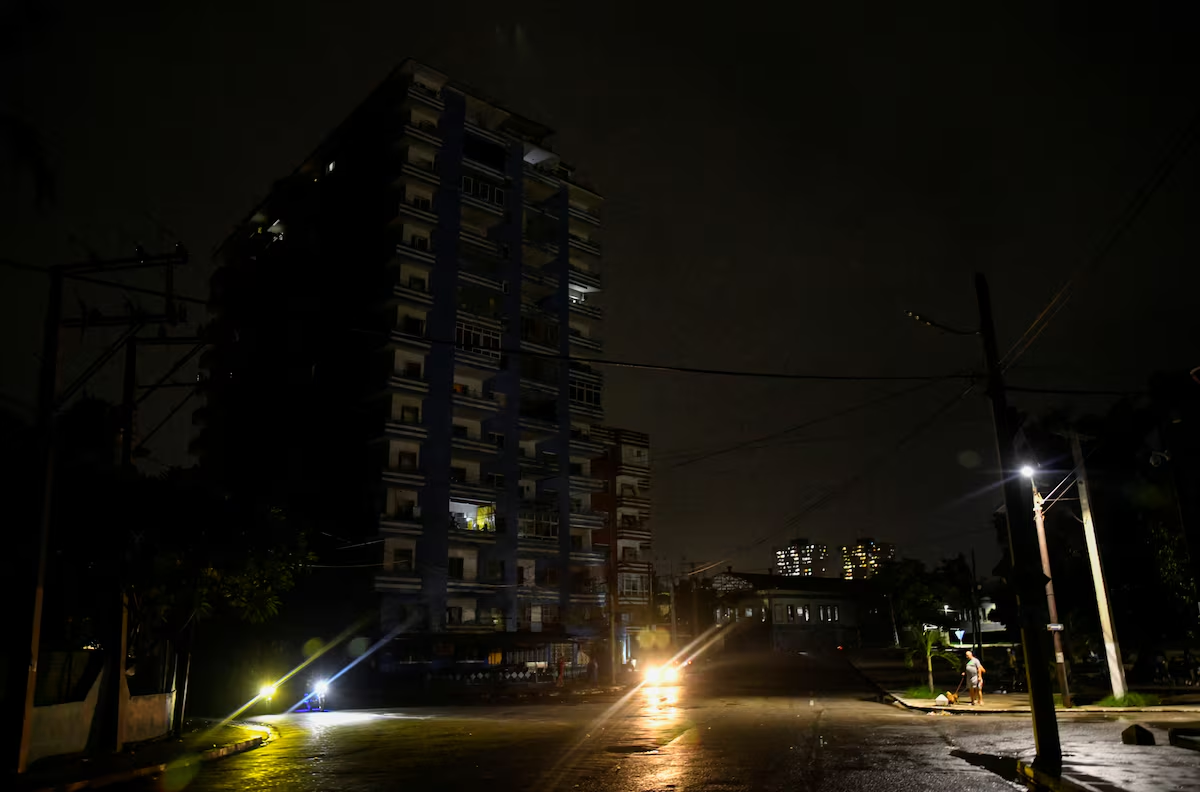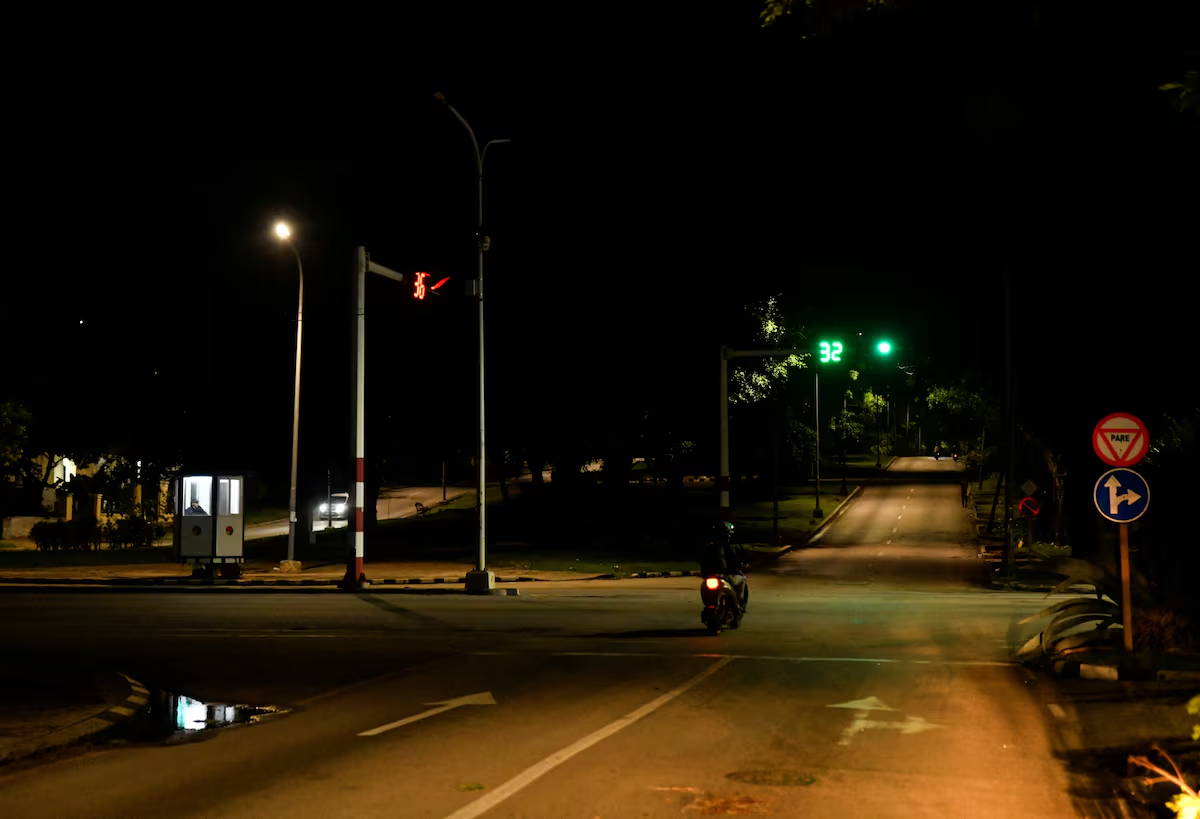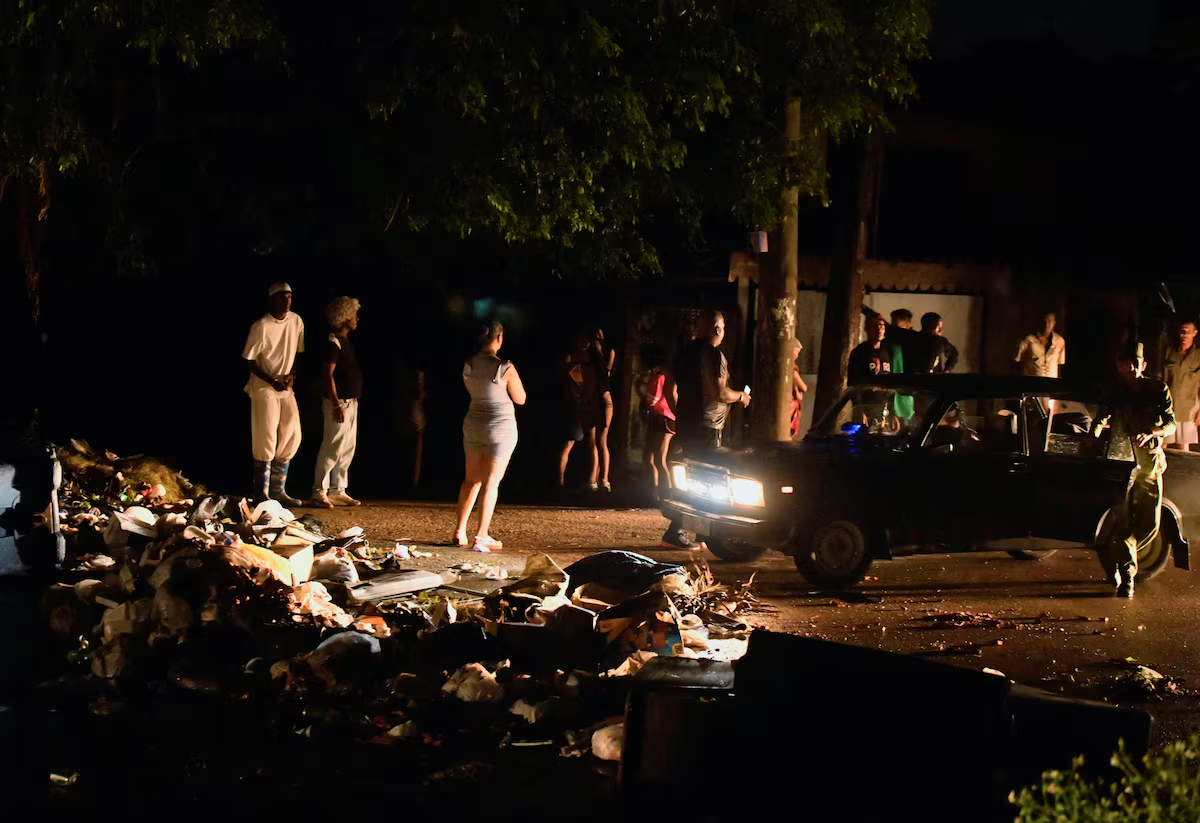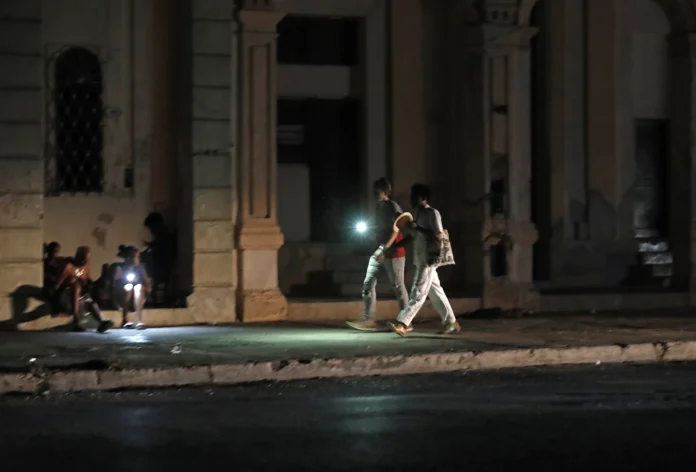Cuba’s efforts to restore electrical service to the island hit a significant setback late Saturday, as authorities announced that the national power grid had collapsed for a third time. This latest failure left millions of residents in the dark and raised concerns about the government’s ability to effectively manage the energy crisis that has plagued the nation for weeks.
The crisis began Friday afternoon when Cuba’s largest power plant went offline, leading to a nationwide grid failure. State-run media reported that the grid experienced another collapse early Saturday morning, despite some initial progress in restoring power later in the day. However, by 10:25 p.m., the Havana Electric Company confirmed on Telegram that the entire national electro-energetic system had been completely disconnected once again.

Shortly after posting this update, the Havana Electric Company removed the message from its Telegram feed, raising questions about transparency and the government’s communications during this crisis. As of early Sunday morning, millions of Cubans remained without electricity, with the energy ministry acknowledging that “another disconnection” had occurred in the western sub-system, which encompasses the capital city of Havana. The ministry later emphasized on social media platform X that the process of restoring electrical service remained “complex.”
This third grid collapse comes as a major blow to the government’s efforts to quickly provide relief to citizens who are already grappling with severe shortages of food, medicine, and fuel. Reports from Reuters indicated that small protests erupted overnight in Marianao and Cuatro Caminos, two areas in Havana, as residents expressed their frustration over the ongoing power crisis. While various videos circulated on social media showing protests in other parts of the capital, Reuters could not independently verify their authenticity.

The power outages also significantly impacted internet connectivity across the island. Data from internet monitoring group NetBlocks revealed a sharp decline in internet traffic on Saturday, making it extremely difficult for many residents to charge their phones and access online services. The network data indicated that Cuba remained largely offline amid the second nationwide blackout, reflecting the widespread disruption caused by the electricity failures.
Even before the recent collapses, the Cuban government had been facing a dire electricity shortfall, prompting the Communist-run administration to send non-essential state workers home and cancel school for children in an effort to conserve fuel for power generation. The situation has underscored the precarious state of Cuba’s electrical infrastructure, which has been plagued by problems for years.
Government officials have attributed the prolonged blackouts, which can last anywhere from 10 to 20 hours a day in many areas, to a combination of aging infrastructure, fuel shortages, and increased demand for electricity. In recent statements, Cuban authorities have also pointed to the ongoing U.S. trade embargo and sanctions imposed by former President Donald Trump as contributing factors to the challenges the country faces in securing fuel and spare parts for its oil-fired power plants.

However, the U.S. government has denied any responsibility for the grid failures, maintaining that the challenges facing Cuba’s energy sector stem from domestic mismanagement rather than external pressures. This ongoing power crisis highlights the complex intersection of political, economic, and social issues that have long affected the island nation.
As the Cuban government grapples with the crisis, the public’s patience is wearing thin. With protests breaking out and growing discontent among the population, the government is under pressure to find immediate solutions to restore power and stabilize the situation. The future of the national electrical grid remains uncertain, and the ongoing challenges may require significant reforms and investment to address the underlying issues.
In the meantime, many Cubans are left to endure the consequences of the outages, facing challenges in accessing essential services and maintaining their daily lives. The power crisis not only disrupts day-to-day activities but also threatens the livelihoods and well-being of millions on the island, raising urgent questions about the government’s ability to respond effectively to this pressing issue.




